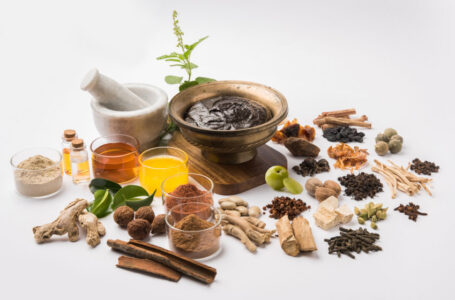Manage Your Stress With Ayurveda

Stress is a problematic term to define, and there are always differing opinions whenever its definition is concerned. It is sometimes considered as what happens within and not around someone. Perhaps this difficulty in its description is based on the fact that it is a physiological reaction rather than a physical. It entails all the responses that accompany certain stimuli, be it physically or emotionally driven.
Since there are several schools of thought regarding stress, Ayurvedic physicians’ perspective is much relevant here. These physicians refer to stress as a disturbance in the nervous system. A disturbance under the control of Vata is an invisible Windsor energy that regulates internal movements.
The quantity and movement of this Vata are what causes stress based on the perspective of Ayurvedic physicians. It is with this belief that Ayurveda approaches the management of stress. This is done by maintaining a balanced state of the Vata. Hence, the movement of the body is restricted through sleep, diet, and other anti-vata activities.
Of all methods of stress management known to man, Ayurveda is unique. It has a concise and straightforward process of breaking things down. Ayurveda simplifies energetic qualities into two groups; if it brings about a balance to the body, it is healthy. If it otherwise brings imbalance, it is unhealthy.
This process of stress relief using Ayurveda can be done after one’s body type has been determined. Many online questionnaires claim to provide the data to do this, though less accurate. Ayurvedic practitioners, on the other hand, can give a body-type constitution. Their results can be used to choose what matches one’s energetic qualities. Following the principles of Ayurveda, a balance can be struck between one’s body and mind.
There are various methods to practise Ayurveds, but the one most famous incurs the use of Adaptogens. This method is also easy for people who would not like to stress themselves further by sticking to schedules or partaking in physically demanding activities.
The Relevance of Adaptogens to Stress
Adaptogens are essential to managing stress. They are a well-researched and classified group of botanicals with unique properties. Substances must meet several criteria before they can be classified as an Adaptogen. These include being non-toxic, being balanced, and supporting the body’s fight against stress agents.

These botanicals work in harmony with parts of the brain to ensure stress relief in the body. They also ensure that the body is well adapted to stress changes and keep the stress levels in check. The choice of adaptogens is, however, very complicated. Because a botanical should not only be able to calm and energise the body, it must also be able to reduce stress and pose no hazard to the body.
This is why Ashwagandha is a miraculous adaptogen. It is suitably adapted to work for all types of people, without having any side-effects. It is a proven anti-vata that can be used over a long period of time.
Generally, Ashwagandha is taken in the form of powder along with other edibles. The most common products that are taken along with it are milk, sugar, and even honey. These natural sweeteners contain Anupama, which is a transporter for the energy in the herb. They are used with Ashwagandha and all other Adaptogens because Ayurveda advises that this transporter must always be present when taking adaptogens.
There are also certain times that the adaptogens are recommended to be taken. Although there is no harm in taking them any time of the day, it is wiser to fix a specific time. The best time for this is in the morning when the body needs a balance between energy and calmness because Ashwagandha has an effective calming property. It can also be taken during lunchtime too because it will help with digestion. The only uncertain time is at night because it is considered less-demanding for stimulation. Still, it all depends on individual preference.
Other Ayurvedic Stress Management Practices
Earthing

Unlike some other methods of stress relief, Ayurveda is indeed the most holistic and naturalistic. There is always a connection between earth’s elements and its beings. The earthing process is quite simple, just like adaptogens. All that is required from anyone taking this approach is taking the courage of walking barefooted on the earth. As simple as this might seem, it is very efficient and relaxing to the body. It is a bridge, a form of connection between the person walking and the earth beneath.
Physical Touch and Abhyanga

The importance of touch to proper body functions cannot be over-emphasised. This can be noticed in the high demand for therapeutic massage as a form of stress relief. This is why Abhyanga (self-massage) is an effective way to manage stress without needing anyone else.
The process involves administering body massage by one’s self according to their body-type. With the specific oil that fits the body type, the body should massaged right before going to the shower for a bath. The massage starts from the head, and it is done all over the parts of the body until the toe is reached. The oil used must also be well rubbed to ensure that it sinks well into the body tissues, then a bath can be taken to wash off the oil and dirt. These procedures are nourishing and relieving to the body.
Pranayama and Mindfulness practices

There is a significant number of similarities between Ayurveda and Yoga. This is observed in their primary function, which is to maintain the wellbeing of the body. Although, Pranayama is more related to yoga. The only requirement here is breathing, and the breathing process is done intentionally, with particular attention given to the frequency, the pattern of repetition, and time taken for each breath. This Ayurvedic practice promotes unity between the body and thoughts; hence it relieves anyone who practices it.







